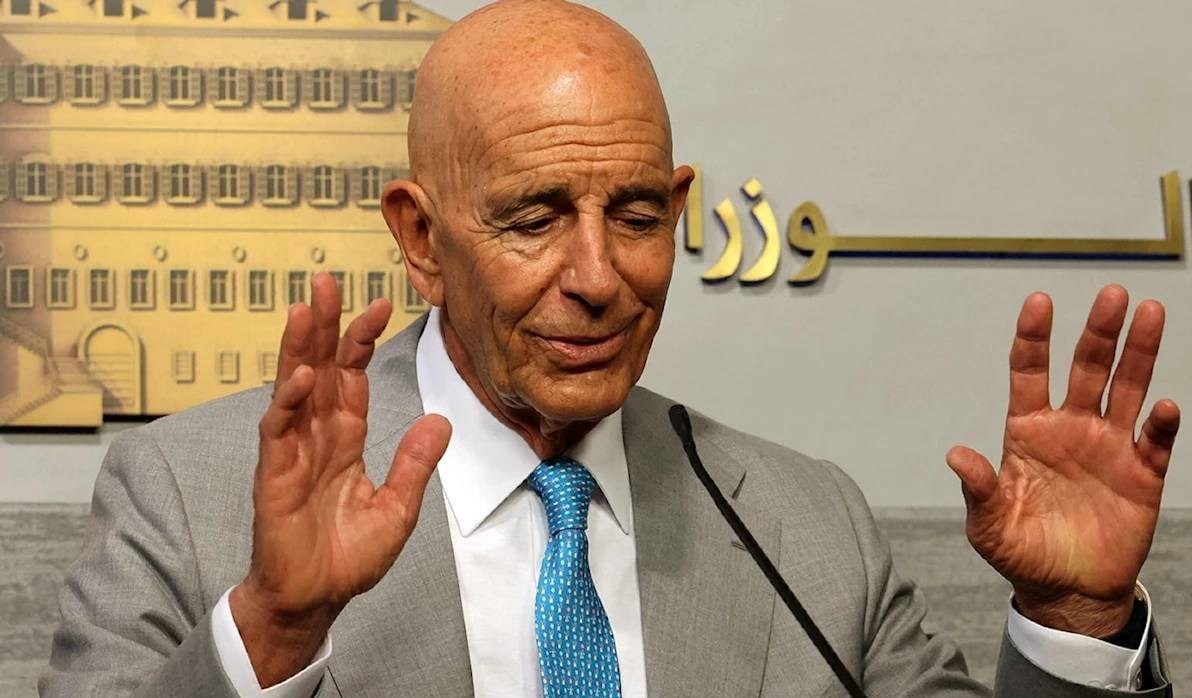Alwaght- Given the current climate in Beirut, where baseless accusations are flying thick and fast, the origins of some of Lebanon's most destabilizing news can be traced back across the border, especially into Syria and from the regime of Ahmad al-Sharaa that since later last year seized the power in Damascus on the US and Israel strength and is doing everything to win the hearts of Tel Aviv leaders.
Two days ago, the Syrian government said that it "destroyed" a group affiliated with Hezbollah and arrested its members. It said that they were arrested in raids on Sasa and Kanaker in Damascus outskirts. Hezbollah has denied any links to them, adding that it currently has no activity in Syrian territory.
Common path of al-Sharaa and Netanyahu against Hezbollah
It seems that the claim by security forces of al-Sharaa about arrest of Hezbollah-affiliated group is an attempt simultaneous with the Israeli push against Hezbollah.
Simultaneously in Lebanon, the Israeli air attacks against Hezbollah commanders continue in the form of "targeted assassinations" as part of overt military operations. On Thursday evening, media sources, including Al Mayadeen, reported that Israeli warplanes had targeted the area around the Mays Castle in the Ansar village in southern Lebanon in heavy attacks.
Early Friday, the Israeli army confirmed, by publishing a video on X, that it had targeted Wassim Saad Jabeq, a member of Hezbollah's "Imam Hussein" unit in southern Lebanon. Israeli officials officially confirmed that "Jabeq played a central role in guiding forces and was responsible for efforts to rebuild this Hezbollah unit in the south."
Washington-Tel Aviv task division in Beirut
While the Israeli regime through military operations and occasional bombing is seeking to mount the pressure on Lebanon, in Beirut the Americans have been politically engaged in the anti-Hezbollah campaign under" Barrack plan." Thomas Barrack, the US envoy to Lebanon, has emerged as the architect of the new American plan, replacing Morgan Ortagus, the deputy Special US envoy to the Middle East. Barrack presented to the Lebanese government three documents that underpin the US's Lebanon strategy. These documents insists on Hezbollah disarming according to a certain and binding timetable, dismantling Qard Al-Hassan Credit Institute as the financial body of Hezbollah, and immediate disarming of the Palestinian camps in Lebanon.
The most pivotal element of the US proposal—the call for Hezbollah's disarmament—has entered a new phase after being approved by the Lebanese cabinet, led by Prime Minister Nawaf Salam, this past week. However, no concrete timeline for its implementation has been set, and the Lebanese government has cautioned that its military's capabilities are limited.
Concurrently, Trump's envoy has explicitly threatened that any delay by the Lebanese government in meeting these demands will result in the suspension of international support and a cutoff of aid for Lebanon's reconstruction. The envoy claimed that failure to execute the plan would grant Israel a "free hand" to operate within Lebanon and bring US-Israel negotiations on a ceasefire arrangement to a complete halt. Consequently, the proposal has taken on the character of a military ultimatum rather than a political initiative.
This development comes as Lebanon's Information Minister, Paul Morcos, has also stated clearly that while the army will pursue the "state monopoly on weapons" initiative based on its available logistical, material, and human resources, fulfilling this objective may require "additional time and effort."
Outlook of of anti-Hezbollah pressure
Within Lebanon, the political focus is currently fixed on a government that, on one hand, claims to be strengthening the state's sovereignty by monopolizing military power in the hands of its army, but on the other, remains silent in the face of recurrent airstrikes by Israeli warplanes.
Even the recent Israeli strike on Hamas leaders in the Qatari capital Doha has reverberated in the debate over Hezbollah's disarmament in Lebanon, leading many to view the initiative with increased skepticism. A BBC correspondent in Qatar confirmed this shift, reporting in the aftermath of the Doha bombing that these events have ultimately benefited Iran that is opposed to disarming, and that even those in Lebanon who once supported disarming Hezbollah are now having second thoughts.
Beyond these immediate developments, the very implementation of Hezbollah's disarmament faces profound structural and historical challenges within Lebanon. The Democratic Arab Center (DAC GmbH), a Denmark-based think tank focused on Arab studies, has outlined the following obstacles in a report, concluding that they will likely lead the initiative to a dead end:
The first major obstacle is that despite extensive and heavy Israeli bombing campaign against Hezbollah's infrastructure, the resistance movement still possesses a significant, and largely undeclared, arsenal of missiles and military hardware.
The second issue is the deep political and sectarian divisions within Lebanon's mosaic-like society. These rifts have created stark disagreements over disarming Hezbollah. Any step taken without a consensus among all factions is fraught with the risk of internal strife and even civil war. In fact, a large segment of the Shia community—one of the country's three major sects—views Hezbollah's weapons as a guarantor of their security against external threats and is unwilling to cooperate with the US-backed government plan. Reports even indicate that Shia soldiers, who make up roughly 50 percent of the Lebanese military, are themselves reluctant to enforce the disarmament of Hezbollah.
Also, insecurity and instability on the Lebanese borders due to the continuation of the Israeli airstrikes have given Hezbollah the adequate justification to maintain its arms for deterrence against Israel.
Ahmad Abdel Salam Horami, a professor of politics at Mustansiriyah University in Baghdad, believes that Hezbollah disarming is not a mere security, military, or political issue in Lebanon, rather, it is a complicated political issue linked to internal Lebanese balance of power and regional equations and any effort to establish a state monopoly on weapons in Lebanon requires a comprehensive domestic and regional strategy. This strategy must be founded on internal political reforms, the strengthening of state institutions, and the provision of genuine security guarantees, backed by rigorous regional and international assurances.



























